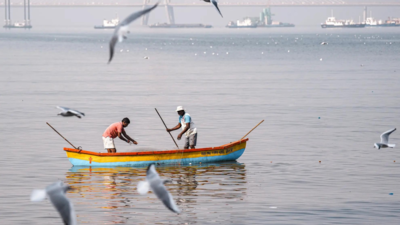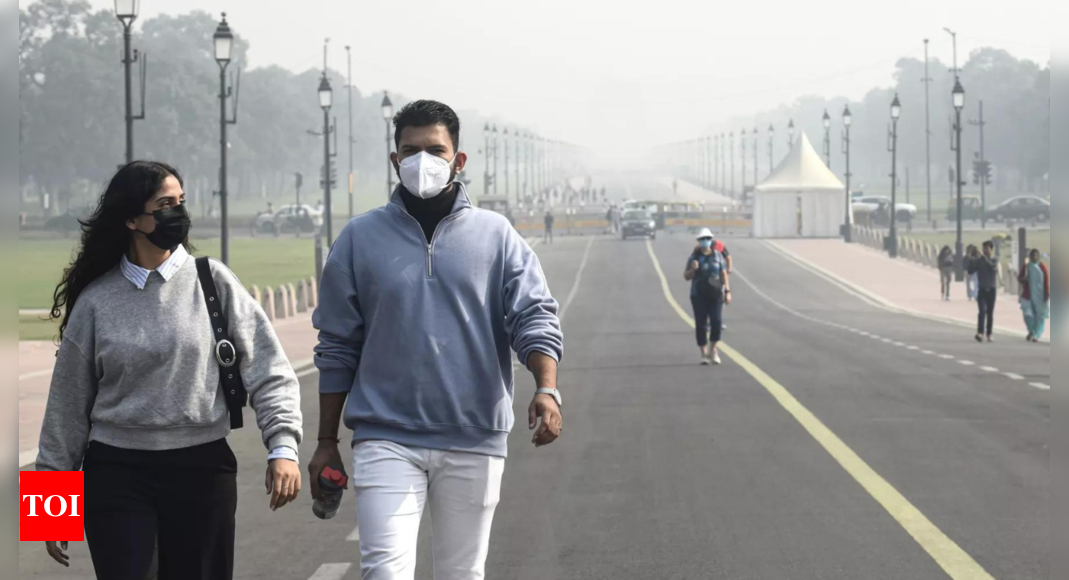MUMBAI: Kashinath Bhoir has not returned to the Versova jetty for a week: he and numerous other fishermen have ventured almost 100 nautical miles (around 185km) into the sea to secure their catch. Dnyanesh, his brother, says the fog that blanketed a vast expanse of Arabian sea off Mumbai’s coast last week has made the fish move out of its usual 15-20 nautical mile range near the coast towards warmer waters.
A Met official said easterly winds have propelled the haze from Mumbai towards the sea. It currently extends 40-50 nautical miles offshore, diminishing visibility to 2 km for fishing vessels .
According to fishermen association head Devendra Tandel and Rajhans Tapke, fishing boats and trawlers are now compelled to use up substantial stocks of fuel to venture up to 100 nautical miles (India’s territorial waters extend up to 200 nautical miles). As fish migrate towards warmer waters, the catch is dwindling and prices escalating in the city’s markets.
Fluctuating weather patterns have altered fish migration routes, with Bombay duck, typically caught near Versova, now found beyond Palghar towards Gujarat. Similarly, sardines have shifted northward from the Konkan towards south of Mumbai, they said, highlighting that these alterations in patterns are directly related to weather conditions. According to Tandel, pomfrets have travelled far beyond Mumbai waters.
Tapke observed that the recent collision between a fishing vessel and a cargo ship occurred due to poor visibility caused by the dense smog near the coast. Explaining the weather phenomenon, Kamble said the easterly wind travelling towards the western coast is carrying dust and pollutants from various parts of the state, pushing the smog over the Mumbai region further into the sea. “This time it is not Mumbai’s pollution alone, but from other surrounding urban setups as the wind is blowing from the countryside towards the coast,” he said. It may be noted that the extended smog over Mumbai is primarily due to the substantial moisture that flowed in with the interaction of easterly, northerly and westerly winds over Maharashtra leading to condensation.
The initial foggy condition which was due to a drop in temperature thus transformed into widespread smog over the past few days as the heavy moisture and insufficient wind speed forced the dust and smoke from vehicles, garbage and construction sites to remain suspended in air. Since Monday, however, the smog has been rapidly dissipating.
Tandel, who is chief of All Maharashtra Fishermen’s Action Committee, said the cost of fuel and ice for cold storage, rationing and maintenance of a vessel has increased substantially over the last week, leading to rise in prices of fish. He said since the boats were arriving late, it has also resulted in shortage. “The cost of Bombay duck has increased more than double while pomfrets and surmai are 30-35% more expensive. If the same weather continues, the rise could be more,” Tapke added.




